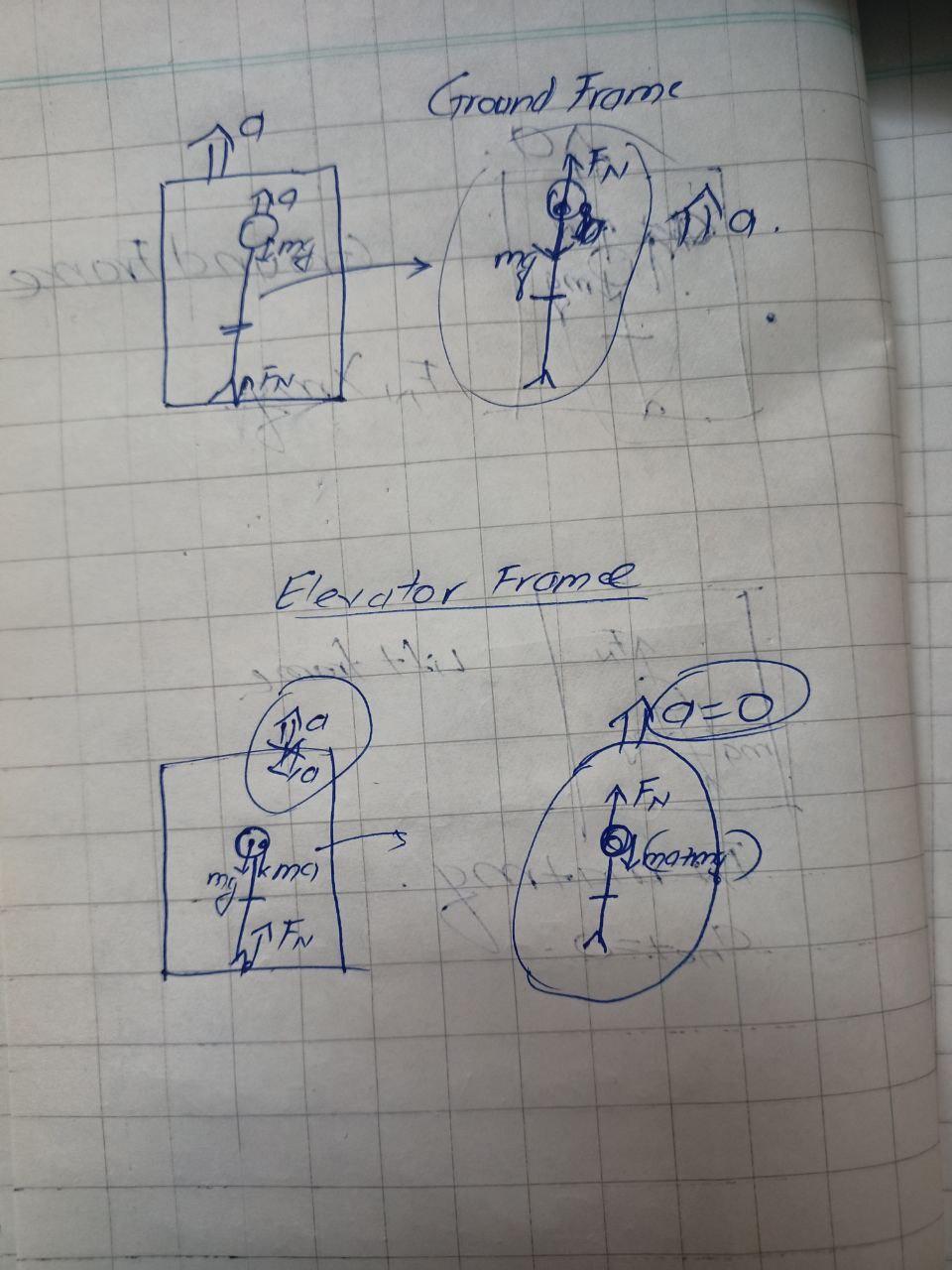
For understanding this, you have to specify the frame of reference. The person is floating up, as mentioned by Noah's comment.**
Ground Frame: Here, the elevator and the man move up with 'a' acceleration. The normal force, as you rightly mentioned, is greater than the weight of the man, so relative to the ground (or the building) the man does seem to be floating up, as the elevator is going upwards.
Elevator frame: Since the elevator is accelerating, this is a non inertial reference frame, so we have to add pseudo forces when we have to analyze motion from the point of view of the elevator.
Here, in the elevator's reference frame, the man is experiencing not two, but three forces: His own weight, the normal force exerted on him by the elevator, and the pseudo force 'ma' (where m is the mass of the man). Since neither the man nor the elevator has any acceleration in this frame, the forces should be equal, i.e.
Normal force = ma+mg
So, for an observer sitting inside the elevator, the man does not float up, and is stationary.

